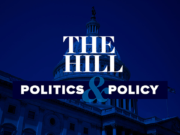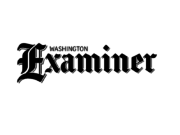This piece originally appeared in the Richmond Times-Dispatch on June 25, 2023.
It took over two years, but YouTube has finally learned a crucial lesson about the dangers of restricting political speech.
This month, the online video giant announced important changes to its policy of removing videos that include election-related “misinformation.”
YouTube began the policy in an effort to stop particular categories of misinformation that the company claims cause real-world harm, including assertions that previous elections hadn’t been fairly decided. The site removed thousands of videos under these rules, many of which allegedly included unsubstantiated claims about the 2020 presidential election.
The rules ban “content advancing false claims that widespread fraud, errors, or glitches occurred in certain past elections to determine heads of government. Or, content that claims that the certified results of those elections were false.” The policy revisions adopted in early June mean that these rules no longer apply to content related to the 2020 U.S. election and earlier American elections.
To be clear, I do not support election denialism or attempts to mislead the public with knowingly false claims. However, I’m also deeply concerned about the fact that policies limiting political speech inevitably punish innocent speakers and damage online discourse.
YouTube’s policy highlighted the intrinsic problem with attempts to stop “harmful” political speech. The company now admits that its election misinformation policy failed to achieve its ostensible goal, noting in the statement announcing the policy shift, “In the current environment, we find that while removing this content does curb some misinformation, it could also have the unintended effect of curtailing political speech without meaningfully reducing the risk of violence or other real-world harm.”
Put more simply, YouTube acknowledged that the former policy failed to eliminate harm and resulted in the removal of vast amounts of political speech that wasn’t “misinformation.”
Although it took longer than it should have, YouTube ultimately recognized this reality — and the folly of policing speech in this way.
The rule’s defects included the fact that YouTube often treated mere reporting on election fraud claims as misinformation. These removals sometimes deleted content from journalists or news outlets, and even one video released by the Jan. 6 committee itself couldn’t escape YouTube’s guidelines. Because the committee included footage of President Trump making unverified claims about 2020 election irregularities, YouTube censored the video.
Within a few weeks following the 2020 election, YouTube removed over 8,000 channels for violating this rule. The policy ultimately resulted in the removal of tens of thousands of videos.
YouTube’s course correction is a welcome one. It’s the latest high-profile example illustrating that attempts to fight “bad” political speech — even if executed by private entities — will inevitably result in the removal or suppression of useful political speech.
As YouTube discovered, such practices invariably lead to the rule-makers sanctioning speakers who aren’t even promoting or participating in the conduct that the rule-makers are trying to address. In the case of the policy in question, that meant punishing a wide swath of users, including journalists acting in good faith.
Instead of these restrictive, anti-speech policies, the antidote for “bad” speech is more speech.
A platform that embraces free political speech will necessarily permit some content that others might find harmful. This is the nature of the venerable “marketplace of ideas,” in which the public is free to evaluate — and push back against — speech of all types, including political speech they might view as wrong or deeply offensive.
YouTube’s modification to its rules will make the platform more friendly to political speech generally. It will also allow YouTube to err on the side of allowing speech, not prohibiting it. This move toward permitting more speech, not less, will be especially important as the run-up to the 2024 election begins in earnest.
While YouTube is far from perfect, its recent shift signals that the company can learn from its mistakes and recognize the inherent peril created by targeting specific categories of political speech.














